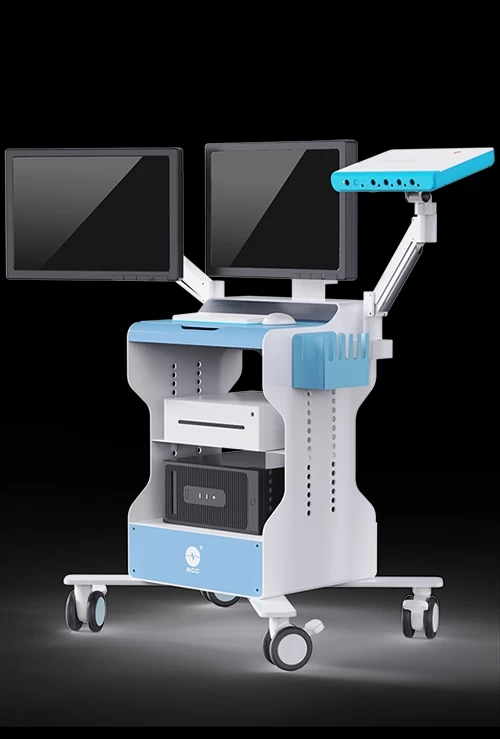Electromyography (EMG) devices have become indispensable tools in clinical settings, providing critical insights into muscle function and nerve health. At NCC, our advanced EMG/EP systems leverage cutting-edge hardware and software design, along with interference-resistant data transmission technology, to deliver high-quality EMG signals for both medical and research purposes. This article explores the various applications of EMG devices in clinical environments, highlighting their role in diagnosis and treatment.

1. Diagnosing Neuromuscular Disorders
One of the primary applications of EMG devices is in the diagnosis of neuromuscular disorders. By measuring the electrical activity of muscles, clinicians can identify conditions such as:
- Myasthenia Gravis: A chronic autoimmune disorder that leads to varying degrees of skeletal muscle weakness.
- Muscular Dystrophies: A group of genetic diseases characterized by progressive weakness and degeneration of the skeletal muscles.
- Peripheral Neuropathy: Damage to the peripheral nerves that can cause weakness, numbness, and pain, often as a result of diabetes or other conditions.
NCC's EMG systems are equipped to perform quantitative EMG recordings and nerve conduction velocity (NCV) diagnostic tests, enabling precise assessments of muscle and nerve function.
2. Monitoring Recovery in Rehabilitation
EMG devices play a crucial role in rehabilitation settings, particularly for patients recovering from strokes or injuries. By continuously monitoring muscle activity, clinicians can:
- Track Progress: Assess improvements in muscle strength and coordination over time.
- Tailor Rehabilitation Programs: Adjust treatment plans based on real-time data, ensuring that exercises are effective and appropriate for the patient's current condition.
NCC's portable EMG/EP systems, which can be easily transported and operated with a laptop, allow for flexible monitoring in various rehabilitation environments.
3. Guiding Treatment Decisions
EMG devices provide valuable information that can guide treatment decisions. For instance, in patients with carpal tunnel syndrome, EMG can help determine the severity of nerve compression and the need for surgical intervention. Additionally, EMG signals can be used to:
- Guide Injections: EMG can assist in accurately placing botulinum toxin or phenol injections into specific muscles, enhancing treatment efficacy for conditions like spasticity.
- Evaluate Surgical Outcomes: Post-operative EMG assessments can help evaluate the success of surgeries aimed at relieving nerve compression.
4. Supporting Research and Development
In addition to clinical applications, EMG devices are widely used in research settings to study muscle function and neuromuscular control. Researchers utilize EMG data to:
- Investigate Muscle Coordination: Analyze how different muscle groups work together during various activities, contributing to our understanding of movement mechanics.
- Develop New Therapies: Explore innovative treatments for neuromuscular disorders by assessing muscle responses to different interventions.
NCC's modular EMG/EP systems support various configurations, making them ideal for research applications that require flexibility and adaptability.
Conclusion
EMG devices have a profound impact on clinical practice, offering valuable insights into muscle and nerve function that inform diagnosis, treatment, and rehabilitation. At NCC, our state-of-the-art EMG/EP systems provide clinicians with the tools they need to deliver high-quality care, from diagnosing neuromuscular disorders to guiding rehabilitation efforts. By harnessing the power of electromyography, healthcare professionals can improve patient outcomes and advance the field of neuromuscular medicine. For more information about our EMG solutions, contact NCC today!








Comments (0)